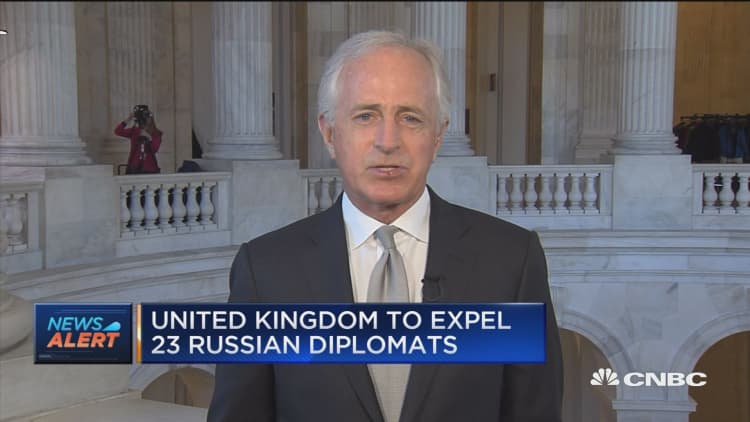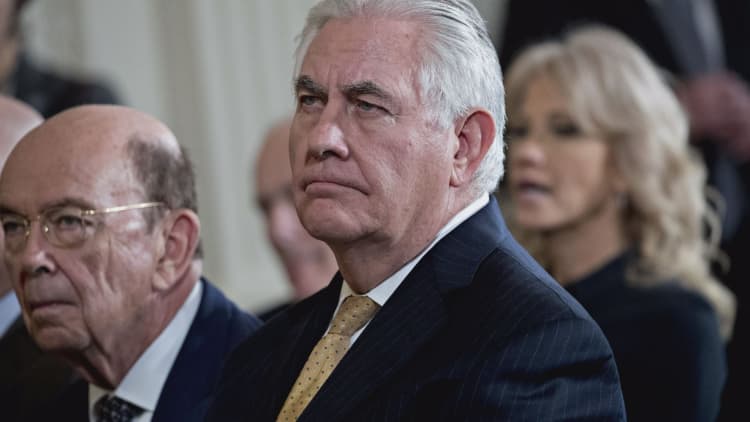
U.K. Prime Minister Theresa May announced a series of measures to punish Russia on Wednesday, following a nerve agent attack on a former Russian spy and his daughter in Salisbury, England.
The measures include the expulsion of 23 Russian diplomats, the single biggest expulsion in over 30 years. May said the U.K. would also not send an official government representative to the World Cup soccer tournament in Russia this summer.
The U.K. "doesn't want to break off all dialogue but this relationship cannot be the same," May said in Parliament, but announced that the U.K. is "suspending all high-level contact between the U.K. and Russia."
May's announcements included:
- U.K. to expel 23 Russian diplomats identified as "undeclared intelligence officers." They have a week to leave, May said.
- U.K. to "degrade Russian intelligence capability for years to come" and will take immediate action to "dismantle espionage network."
- U.K. to "harden defenses against hostile state activity in the U.K."
- Strengthened sanctions against the abuse of human rights.
- U.K. government to use powers to monitor and track those coming to the U.K. who could threaten the country.
- Foreign Minister Sergei Lavrov's invitation to the U.K. revoked.
The penalties mark the most serious deterioration in U.K.-Russia relations in recent years. They come after Sergei Skripal, a former Russian spy-turned-double agent for the U.K., and his daughter Yulia, were subject to a nerve agent attack on March 4. They remain in a critical condition in hospital.

Earlier this week, May said it was "highly likely" that Russia was behind the attack that saw a Russian-developed nerve agent, part of the "Novichok" series of deadly chemical weapons, used against the pair. The Kremlin then failed to give any explanation to the U.K. when given a deadline of midnight Tuesday night.
On Wednesday, May was unequivocal, saying Russia was "culpable" for the attempted murder of the double agent.
We have disagreements with the people of Russia, May said, and "it is tragic that President (Vladimir) Putin has chosen to act in this way." She added that the U.K. does not stand alone in "confronting Russian aggression," saying that she had spoken with the leaders of the U.S., France and Germany.
'Misleading the international community'
Before the penalties were announced, Russian Foreign Minister Sergei Lavrov rubbished the U.K.'s allegations, saying the country was "misleading the international community."
Addressing parliament, May said Russia had shown "sarcasm, contempt and defiance" to the accusations.
However, May said the U.K. had "no disagreement with the people of Russia" and that it was not in the national interest to "break off all dialogue" with the country.
Still, she warned that the U.K. would not "tolerate a threat to British life on U.K. soil" and that it would take other measures if there is more "Russian provocation."
The Russian embassy in London issued a statement Wednesday afternoon.
It said: "On March 14, Russian Ambassador Alexander Yakovenko was summoned to the Foreign and Commonwealth Office where he was informed that 23 diplomats were declared personae non gratae.
"We consider this hostile action as totally unacceptable, unjustified and shortsighted. All the responsibility for the deterioration of the Russia-UK relationship lies with the current political leadership of Britain."


